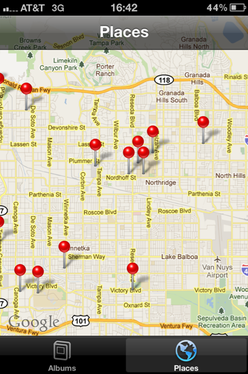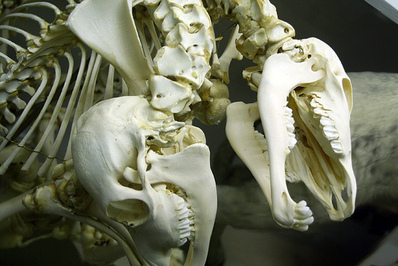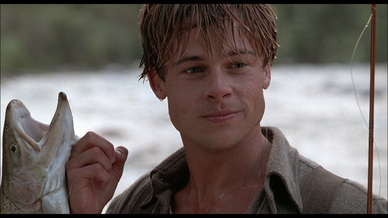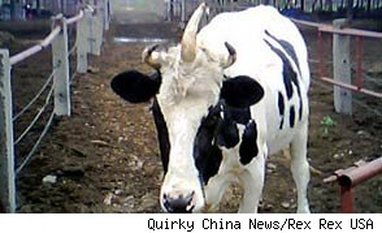If you live in the northern part of Northridge, the borders of Northridge technically define your community. Granada Hills South is a separate community which exists just north of Northridge. Both communities have news and their community journalism would focus only on news that took place within each respective city. So what of the residents that live on the border of the two? Do they only belong to one community? Do readers care more about news that happens across the city or across the street, even if it's technically in a different city? The end of one's personal community is not based on gerrymandered lines.
The app I am proposing would aggrogate (collect) content from news sources. Each piece would be geotagged, or marked with a code that corresponds with a point on an interactive Google map. Then, to see news, users would view the map closest to wherever they are (or would like to view news) and click on the markers showing where news has taken place.
Online community journalism has succeeded in large part by embracing the internet and social media. Most news outlets (as well as many other companies) have Facebook and Twitter accounts, which they use for updates, promotion, interaction with readers and crowd-sourcing. However, news outlets have failed to use a potentially game-changing technology called geotagging.
Geotagging adds geographical identification data to content such as photos and tweets. It uses the GPS in your mobile phone or laptop to automatically code content with the location.
 Imagine if this map (left) was your newsfeed. You click on each of the red markers to see what news comes from there. We have the tecnhology for this. This is actually a feature on my iPhone 4 where each picture you take is logged and placed on a map, as long as location services are turned on. Each photo has metadata, which the device recognizes and uses to place it on a Google Map. When clicking on a pin you can see how many photos were taken at that location, and by zooming in you can see more specific details about exactly where it was taken, within a few feet.
I see the future of both professional and citizen journalism using geotagging. I also see readers using a phone app to view news around where they are located, whether at home, work or traveling. This will not only affect the efficiency of community journalism, but readers will have faster, more open access to what is going on near them, propelling community journalism a format that is as quick and dynamic as the large online media outlets are today.
 Two-headed calf skeleton by C.Puremorning
I can hammer a nail into my nose, and I know all the names of the deer with fangs. I listen to Ripley's Oddcast, and I've been trying to get a group to go together to go to the California Institute of Abnormal Arts. My desktop is a picture of a two-headed cow. I hula-hoop with fire and read about cults. The normal is great, but the abnormal is most captivating.
For this post, I won't explain why we love to learn about the abnormal, but why we should. Looking at that youtube vid of a two-legged kitten is fun, but maybe it can mean more than that.
Inherently, the fun aspect is a practical value; it fosters curiosity, learning and amusement. Additionally, there's no reason not to capitalize and expand on amusement. In journalism, we learn this adage: “If a dog bites a man, that's not news. If the man bites back, that's news.” People love knowledge of the bizarre, so we should love the potential it has for media.
Secondly, one could argue that it fosters a more accepting environment by expanding our view of reality and opening our minds to diverse practices.
When I worked at the rock wall at California State University, Northridge, one of my co-workers was reading a magazine, and she expressed alarm at an article that was written there. It detailed the relationship a woman had with a younger man, a man who was friends with, and more similar in age, to the woman's daughter.
“Isn't that weird?” my co-worker asked.
“Not really,” I said. “I've seen weirder.” I didn't mention it, but I had read of a man who married a dog, and a woman who married the moon. There's always something weirder, and at some point you just accept that there are strange tastes out there. I'm always interested, but it's hard to put me off or freak me out. In other words, through my knowledge of diversity, I'm more accepting of the marginal lifestyles.
Of course, that's not to say that the strange are always portrayed fairly. Ask any person whether their profession, hobby, culture, or they themselves—strange or not—have been portrayed fairly in the media, and they will say “no.” No matter how hard a journalist tries to get the full story, someone will think it's unfair. C'est la vie.
Learning about the heterodoxical can also teach us about the normal. For example, in the book Mutants: On Genetic Variety and Human Form, the author discusses diprosopus, or the formation of two faces on one person or animal. Creatures with this condition have an excess of a protein called Sonic Hedgehog Homolog, the gene that controls for facial width. Cyclopes, who have a face so narrow that their eyes merge into one, don't have enough of this protein. Without the cyclopes and two-faced freaks (and of course I mean that in the most endearing way), we would have known of no connection between face widths and the Sonic Hedgehog Homolog protein. To a biologist studying embryonic development, there are pertinent implications.
Sometimes, though, we learn about the strange and determine that it is actually a normal thing. For example, say you do something particularly strange. Say you're not attracted to anyone, and you are asexual. Then you see an article or news segment describing a strange culture of people as bizarre, maybe “messed up,” a group of asexuals. AVEN, the Asexuality Visibility and Education Network, brings together people to discover that there is a group of people who feel the same way. Although it's likely that the group was portrayed as an oddity, and others look at the group as weird, you've just discovered that your little strangeness is not unique, and ultimately it's just an uncommon variation.
So learning about the unbelievable has a lot of implications, from scientific to social to just entertainment. Perhaps these are the reasons that we love abnormal, because it expands our minds and has real-world implications. So, here's a picture of a unicorn (tricorn?) cow. Expand your mind with it.
Is there a movie that has ever freaked you out because of its semblance to your own life?
On a road trip from Los Angeles to a suburb of San Francisco, I tried to make conversation with my father. As usual, I had to ensure that we stayed off of certain topics, such as my choice to pursue a career in journalism. My dad went to school to become an engineer, a much safer and seemingly tougher career choice, so like many, he assumed that journalism would be loser career, if you could find a job in it at all.
I instead asked Dad what his favorite film is, and he told me the plot of A River Runs Through It, a film eerily similar to the life of my dad. Both him and the main character grew up in a beautiful, natural setting, exploring with their respective brothers. They both ended up going off to University, and both their brothers were particularly bold, fun people.
I decided to record and watch the movie when we got to my parents' house. Soon after I started it, my dad came in to watch. I don't think he had seen it in a long time.
Dad sometimes says that I remind him of his brother, Dan: risky, curious, energetic. Dan has explored many topics and climbed many mountains: a true fencehopper, and all. Dan is also like the character in A River Runs Through It, the younger brother named Paul, who tries new things, gambles, and becomes a successful journalist. Paul's colorful personality and open mind make his writing shine, and his words immortal.
 There is one more similarity between my dad's life and that of Norman, the older brother in the film. Their brothers, Paul and Dan, lived very exciting lives, and their antics both worried and amused their families. Ultimately, through their dangerous lifestyles and a whole lot of bad luck, they were both killed in their prime.
Later, as always, we got back onto the subject of journalism as my career. This time, my dad said something different than usual.
"Actually, I think you'd make a good journalist." I was surprised to hear this, of course. "You've got an inquisitive mind, like Dan. He could have been a journalist too."
I don't think anyone in my family believes in reincarnation; I know I don't. I just happen to be similar to my uncle Dan, and Dan just happens to be similar to Paul. And Paul was a journalist. So now, because I saw a movie and reminded my dad of the kind of person his brother was, I have Dad's blessing and the chance that Dan lost.
|




 RSS Feed
RSS Feed